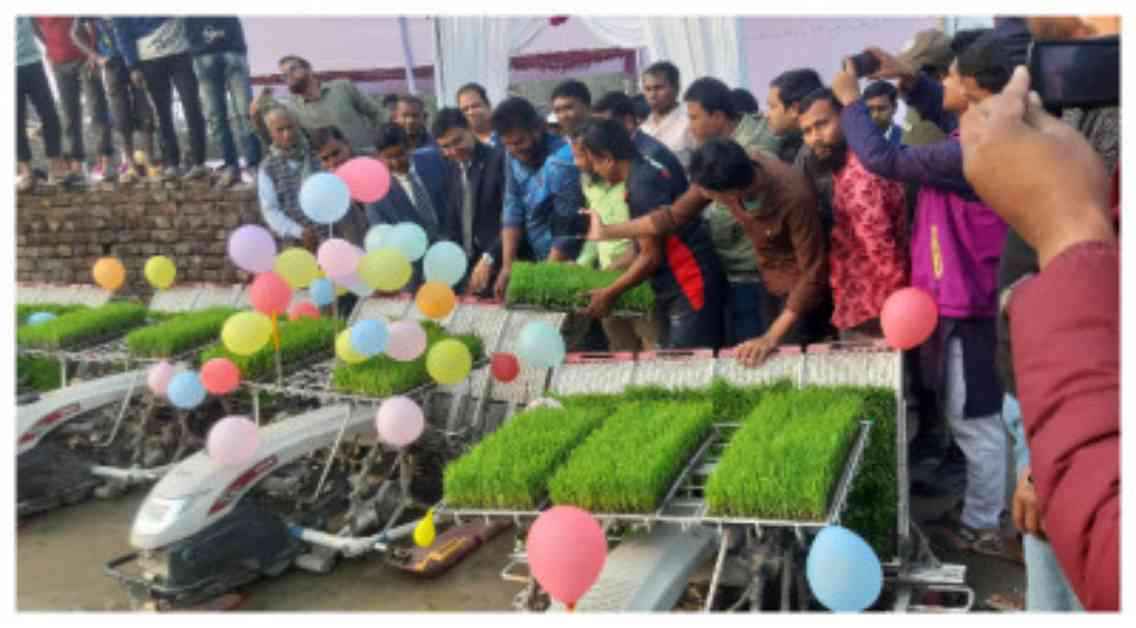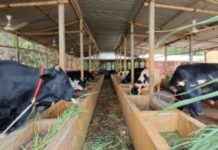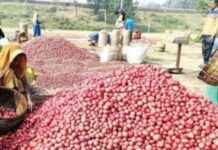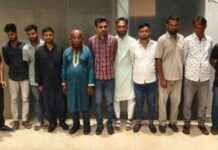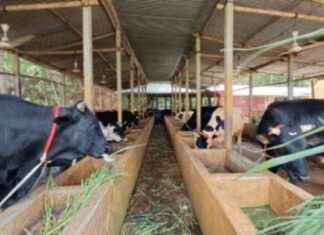Revolutionizing Agriculture in Saiyadpur: A Paradigm Shift in Farming Techniques
In a groundbreaking move, the small village of Saiyadpur in Nilphamari district has introduced a revolutionary farming technique that promises to transform agricultural practices as we know them. The method involves a fully mechanized process for preparing the soil, planting crops, fertilizing, and harvesting—ushering in a new era of efficiency and productivity for farmers in the region.
The launch of this innovative farming approach took place in Pakhatipara, a remote village nestled within the Kamarpukur Union in Saiyadpur. This marks the first time such a comprehensive system has been implemented in the area, aiming to streamline every aspect of crop cultivation—from seedbed preparation to crop cutting and threshing—all under one unified method.
On a recent Wednesday afternoon, the inauguration ceremony was officiated by Mohammad Nayiruzzaman, the district administrator of Nilphamari. Dr. S.M. Abu Bakar Saiful Inlam, Deputy Director of Agricultural Extension in Nilphamari, was also present to oversee the event and offer his expertise on the new farming practices being introduced.
Among the distinguished guests in attendance were Nur-E Alam Siddique, the UNO of Saiyadpur Upazila, and Mo. Jakir Hossain, Deputy Director of Agricultural Extension, along with Ujjwal Kumar Kar, an agricultural scientist from the Department of Agricultural Extension in Nilphamari, and local agricultural officers like Krishibid Dhiman Bhushan.
The 2024-25 fiscal year has seen an increased focus on agricultural development initiatives, with the introduction of the Rice Transplanter technology for planting Boro crops. This high-tech innovation allows for the establishment of crop seedlings through the rice transplanter, revolutionizing the way farming is approached in the region.
Experts in the field emphasize the need to adapt to the changing landscape of agriculture, with a growing population and shrinking arable land. To meet the rising demand for food production, incorporating new varieties of seeds, advanced farming techniques, and modern technologies is crucial. The Ministry of Agriculture’s proactive step towards promoting precision farming through mechanization aims to address labor shortages, boost agricultural productivity, and minimize post-harvest losses—ultimately transforming agriculture into a modern and sustainable livelihood.
The introduction of mechanization in farming practices is a strategic move towards achieving these goals. By implementing the latest technologies, such as the Rice Transplanter, farmers can significantly increase their efficiency and output while reducing manual labor and operational costs. This shift towards mechanized farming not only enhances productivity but also ensures a more attractive and lucrative future for those in the agricultural sector.
As we witness the dawn of a new era in agricultural practices in Saiyadpur, it becomes evident that embracing technological advancements is the way forward for the farming community. With a concerted effort to modernize farming techniques and equip farmers with the tools they need to succeed, the agricultural landscape in Saiyadpur is poised for a significant transformation—one that promises to revolutionize the way we approach agriculture for years to come.
In conclusion, the journey towards a more sustainable and efficient agricultural sector begins with small steps, such as the introduction of mechanized farming methods in Saiyadpur. As we look towards a future where technology plays a pivotal role in shaping the way we grow our food, initiatives like the one implemented in Saiyadpur serve as a beacon of hope for a more prosperous and sustainable farming industry.
